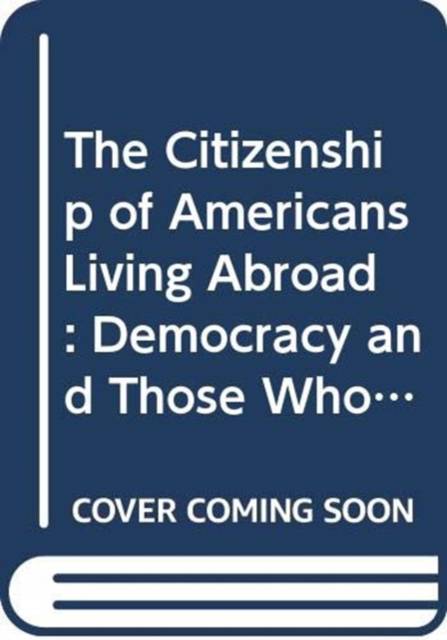
- Retrait gratuit dans votre magasin Club
- 7.000.000 titres dans notre catalogue
- Payer en toute sécurité
- Toujours un magasin près de chez vous
- Retrait gratuit dans votre magasin Club
- 7.000.0000 titres dans notre catalogue
- Payer en toute sécurité
- Toujours un magasin près de chez vous
Description
As technology enables faster travel and increasing migration, borders between nations have become increasingly porous. As the effects of globalization are manifest around the world, the assumption that exclusive ties exist between a territory, a people, and a government is being challenged. In the United States, the ways in which immigration is redefining the content of American citizenship have been extensively discussed, but examining emigration from the US is also essential to gain an understanding of how the definition of citizenship is evolving.
In The Citizenship of Americans Living Abroad, Katya Long provides a detailed and comprehensive analysis of American citizenship overseas, examining the impact overseas citizens have on citizenship both as a status and as a practice. Her main focus is the role that politics plays in defining citizenship, and she takes a qualitative approach to researching this focus by studying Supreme Court decisions and legislative acts, using participant observation, and conducting interviews with Americans living overseas. Using meticulous qualitative research, Long analyzes what the impacts of living abroad are on the political beliefs and practices of US citizens as well as what impact they in turn have on political life in the US. She argues that for overseas citizens, political involvement is a method of staying connected to a state and a government they longer reside in, and in turn that politicians increasingly see overseas citizens as an important constituency to be won over.
By exploring a little-researched area, this book will bring new insights to how citizenship is defined in the age of globalization.
Spécifications
Parties prenantes
- Auteur(s) :
- Editeur:
Contenu
- Nombre de pages :
- 240
- Langue:
- Anglais
- Collection :
Caractéristiques
- EAN:
- 9780415640930
- Date de parution :
- 01-01-21
- Format:
- Livre relié
- Format numérique:
- Genaaid
- Dimensions :
- 152 mm x 229 mm

Les avis
Nous publions uniquement les avis qui respectent les conditions requises. Consultez nos conditions pour les avis.






